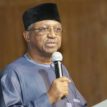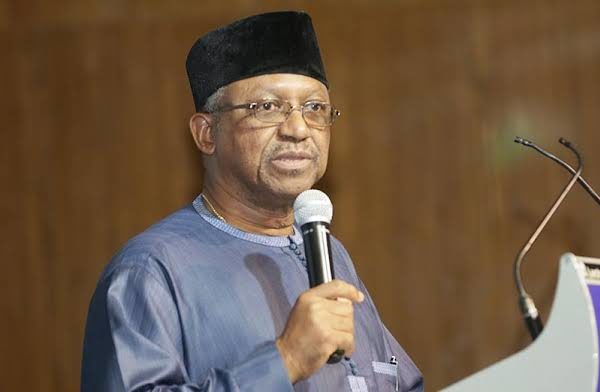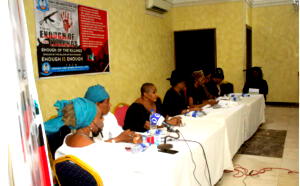Minister of Health, Dr. Osagie Ehanire By Levinus Nwabughiogu Minister of Health, Dr. Osagie Ehanire on Friday rated NIgeria’s maternal...


By Levinus Nwabughiogu
Minister of Health, Dr. Osagie Ehanire on Friday rated NIgeria’s maternal mortality, reproductive health mortality and child mortality very poor, saying it was the worst in the world.
Speaking at a three day retreat organised by the House Committee on Health Services in Abuja, Ehanire however stated that plans were underway to establish a Public Health Security Fund to finance public health in the country.
He said that he had written to the Secretary to the Government of the Federation and the Minister of Finance on the matter
Besides that, the Minister also stated that government had plan to establish
National Emergency Medical Services to meet up the many demands of the sector.
He said: “Nigeria has one of the worst indices in maternal health, reproductive health, child health. Under 5 mortality, we are one of the worst in the world. There was time we were getting over 900 maternal death per 10,000 live birth. In the last five years, it stagnated because of the investment.
“The very concept behind the save 1 million lives was because of the fact that we are having nearly one million needless death in Nigeria that could be avoided if certain things were done and we created some pillars to achieve that.
“That investment was 500 million US dollars taken as a loan by the federal government and given to the states as grant. While technically that was successful, the actual impact of reducing one million death became questionable. Did we really reduced?
“In reality, we needed to have addressed the gaps and one of the biggest gap is lack of access to health care. If a woman is in the village and goes into labour at 1.00am, she is on her own because if she has complication, some of them will not have tomorrow.
“The same thing applies to children. Add the accident on our roads. Some are taken to the hospital and are asked to make payment before being attended to or nobody will attend to you because you cannot have access to ambulance. There is something mission and that is emergency medical ambulance which many developed country have.
“In the wisdom of those who drafted the National Health Act, they included 5 percent for medical emergencies and I want to believe that what was on their mind was to use that to attend to those who left on their own, those who are unsung, those who die silently and are not reported by the newspapers because they live in the rural areas and are only part of the statistics that we see.
“We decided to apply this 5 percent to emergency medical services which the Ministry of health is in the process of setting up and is receiving the support of the House committee.
“We have written to the Minister of Finance and the Secretary to the Government of the Federation to make a case for a Public Health Security Fund. I will like to appeal to members to support the establishment of a public health security fund that will take care of public health security. At the time the 2014 National Health Act was being pursued, the first use of the money I described was the intention.
READ ALSO: 20-year-old man in court for allegedly stealing pupil’s school bag
“Public health security is very important and so, a separate fund can be created to take care of it. The NCDC is already well funded because they get money even from donor agencies. But there is no donation for managing our public health or emergency medical service. So we are looking for support in that area”.
Speaking on the establishment of the National Emergency Medical Services, the minister said “recently, we got five ambulances which we have branded. Since government will to buy all the ambulances, we decided to involve the private sector to form a public private partnership because section 18 of the Act allows the Minister to work closely with the private sector to address problem.
“So, we are pulling together all the ambulances in the country, both private, public and institutional to form the national emergency medical system which will be launched in the FCT within the next one month by the President. The purpose is to use that 5 percent as seed money to look for donations because that money is not enough.
“We register ambulances both private and public, make sure we accredit them, given them certain minimum standard so that they paramedics attached to them. We will know their location and for this we will work with the Federal Road safety.
“We have about 80 percent broad band penetration in Nigeria and for this, we are working with the Nigeria Communication Commission so that when you dial 112, they will refer you to medicals and you will tell us your location. We will locate the nearest ambulance and it will come to you, give you first aid and you do not pay.
“This is very important. There is no payment at the point of service. We are providing not only physical access, but financial access and timely access. You do not have to wait for tomorrow because at anytime of the day, you can get service. The ambulance is guaranteed payment because it is going to work like what we have in Cuba.
“The ambulance will go the person, provide first aid and take the person to the hospital. So, you are not going from one hospital to the other in search of a bed space. Where there is a bed and specialists to attend to you is already discovered on the platform and the ambulance is immediately directed to take the person to that place.
“There is also no payment at the point of therapy and so, nobody is going to say pay for card or pay deposit because that is also guaranteed from the pool of funds contained in the database developed by the NHIS.
“We have agreed with the Association of Private Medical Practitioners and Guild of Medical Directors that we shall do this as part of public service. That is to say it is not a profit making venture, but there will be something to cover their expenses. So, for every run you make, you are paid.
“This will be a pilot and if we are able to get it round the country within the next five years, we would have been to address half of the maternal mortality and under five mortality. If we are able to build this, we will be the first country in Africa that will have an emergency medical system that is functional and bring down those figures in the sector that has remain stagnant.
“If this system works properly, we shall be saving over one million lives and at least 500,000 a year which are lost silently in the rural areas and only exit in statistics”.
Ehanire also stated that there were ongoing efforts to reduce the pressure on tertiary health institutions in the country.
“We are working on a scheme that will revitalize the secondary health care system because one of the new minimum benefit package is healthcare standing in the new platform. It will expanded to include surgery.
“We have told the state governors that if they renovate their secondary health care centre; one General Hospital per local government, we shall bring doctors from our tertiary institutions to come and be consultants there and you don’t have to pay their salaries because they are already on salaries.
“We have done a pilot scheme in Sokoto by bringing doctors to the general hospitals to provide services. We have enough consultants in all our federal medical centres and teaching hospitals to be able to serve the general hospitals and bring back life into that middle level cadre of treatment and reduce the pressure in the tertiary institutions without putting the financial burden on the states.”
In his remarks at the event, the Speaker of the House of Representatives, Femi Gbajabiamila who was represented by Deputy House Leader, Hon. Peter Akpatason said that though the executive arm of government implemented legislative mandates, the legislature still made inputs.
“We recognise that the implementation of legislative mandates is an executive responsibility, but we also recognise that the National Assembly has an essential role in overseeing implementation to ensure fidelity to the objectives
“Every legislation passed by the National Assembly has one ultimate goal, to improve the circumstances of people’s lives and make our country better as a result. The law-making role of the National Assembly does not end when a Bill becomes law.
“We have an additional responsibility to exercise the constitutional oversight authority to ensure that those responsible for implementing legislative mandates remain faithful to the mandate’s objectives”.
The Speaker added that the National Health Act would meet the expectations of the public in healthcare system.
“Over the last eighteen months, the world has experienced a devastating pandemic that has caused loss of life, wreaked economic distress. This would not be the last such pandemic.
“Globalisation and the speed and frequency of travel mean that disease can spread from one corner of the world to another with speed, unlike ever before in history. We must ensure that our healthcare system at home is enough to accommodate and respond to this reality because if we have learned anything from recent events. It is that in global crisis, it is every country for itself”.
On his part, the chairman of the House Committee on Health Services, Hon. Tanko Sununu said the essence of the retreat was to rub mind with all the stakeholders in the efforts to amend the National Health Act.
“The Act provides for the regulation, development, and management of Nigeria’s Health System. The amendments is desirous in order to incorporate the new challenges especially on combating pandemic like COVID-19, incorporation of health research, health security and building resiliency in National Health System.
“In order to achieve a better outcome of the amendments, the committee ‘ invited major stakeholders in the implementation of the Act ranging from the executives, civil society groups, development partners to media practitioners to rub minds with legislators”, Sununu said
The post Nigeria’s maternal, child, reproductive health worst globally ― Ehanire appeared first on Vanguard News.

No comments